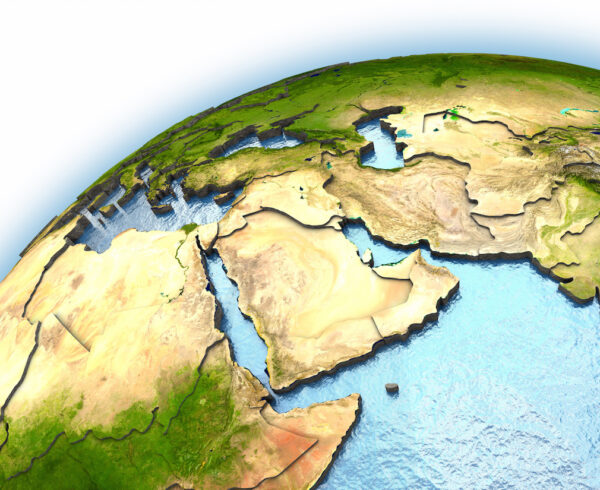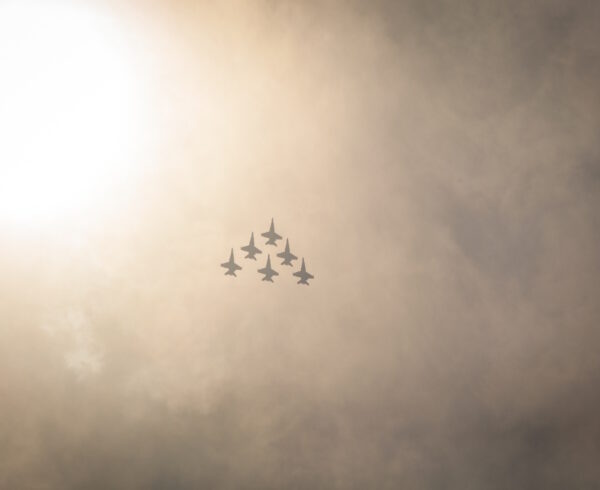The actual threat Islamic State poses to the homeland of the United States represents one of the areas of confusion among many citizens about this terroristic organization. President Obama and his administration have contributed to this confusion by denigrating Islamic State capabilities. Islamic State, at this time, does not represent an existential threat to our homeland; however, dedicated members of Islamic State have been able to damage our allies and us. More importantly, Islamic State causes anxiety among many citizens. Pronouncements from the Obama administration and articles in the media that confuse statistical significance and societal significance do not help the situation.
Statistical and Societal Significance
Statisticians can estimate the probability of an individual U.S. citizen suffering harm, including death, from an Islamic State attack on our homeland. Media reports of these calculations suggest a higher probability of a citizen being struck by lightening than from Islamic State operations within our homeland. I think the results of these probabilistic calculations, which are based upon group statistics, do not comfort many citizens: Individuals often confound group statistics. For instance, how many of us refuse to seek shelter during a lightening storm despite the low probability of being struck by lightening? That is, an individual struck by lightening or an Islamic State attack suffers a high probability of injury and death.
The fear or anxiety about an Islamic State attack on our homeland represents a societal significance over and above the statistical insignificance. Islamic State, a militarily weaker opponent, employs asymmetric warfare against militarily stronger opponents such as the United States, the United Kingdom, and France. The Islamic State-themed attacks in Paris and San Bernardino, CA provide excellent examples of asymmetric warfare. The goal of this asymmetric warfare is to cause societal anxiety. Of course these probabilistic calculations will change and the anxiety will increase dramatically, if Islamic States acquires weapons of mass destruction and the means to use these weapons in an attack on our homeland.
Confusion
Almost all Muslims reject the Islamic State. Again, group statistics hide the importance of a small subset of individuals—the theologically committed members of this terroristic organization. We must reject assertions denying Islamic State’s medieval religious nature. This denial arises because Islamic State’s commitment to returning civilization to a seventh-century religious and legal environment seems profoundly nonsensical to modern western societies. Perhaps even more preposterous is the idea that a modern revival of this seventh-century environment will lead to an apocalyptic battle between the forces of Islam and Rome (i.e., Judeo-Christianity), resulting in conversion of the world to Islam. Nevertheless, Islamic State longs for this battle and restoration of Islam’s seventh-century “glory.”
Islamic State follows the prophecy and example of Muhammad in exact detail—“the Prophetic Methodology.” An important facet of this methodology involves the killing of vast numbers of non-Muslims and Muslim “apostates” in order to purify the world. We must not be confused by “politically correct” pronouncements that Islamic State does not comply with Islamic theology, that Islamic State has nothing to do with mainstream Islam. Rather, the theology to which Islamic State adheres has been an integral, even if a minor, part of Islam from its beginnings. “The Prophetic Methodology” produces the terroristic actions of Islamic State within the territory the group controls (e.g., the “Caliphate” in Syria and Iraq) and in distant lands (e.g., the United States and other western democracies).
We must realize that these terroristic actions will continue until Islamic State subjugates the world to its version of Islam or until Islamic State and its adherents are totally destroyed. I am not optimistic that rational discourse and exposure to modernity will help to moderate Islamic State. Regrettably, I see no effective way to combat Islamic State absent vigorous and smart military and anti-terroristic actions.
The Climactic Battle
I believe our only effective way to defeat Islamic State is to invade and occupy its territory with sufficient military force until all Islamic State operatives are killed or otherwise neutralized. I hope other countries will join us in this endeavor; however, we should take the fight to Islamic State with or without help from our allies. Islamic State must control and constantly fight to enlarge its territory, a requirement for a caliphate. Eliminate the territorial authority and the caliphate will collapse, leaving only groups outside the caliphate to carry on the fight against the west. Without territory, the beacon alluring adherents to Islamic State will be extinguished.
An important aspect of Islamic State theology will help us in this fight. In summary, this theology envisions an apocalyptic battle between the forces of “Rome” and Islamic State—on behalf of Islam—to take place at the Syrian city of Dabiq, near Aleppo. Dabiq, therefore, has great significance to Islamic State. Flat plains that could easily serve as the location for a great battle surround Dabiq. Islamic State, as evidenced by its published propaganda, believes the Prophet pronounced that the armies of Rome will set up their camp at Dabiq. The armies of Islam and Rome will then meet at Dabiq and the ensuing battle will be Rome’s Waterloo or its Antietam, leading to ultimate subjugation of the world to Islamic State’s vision of Islam. The Pope in Rome no longer has an army but Islamic State propaganda suggests the United States can easily serve as the “new Rome.”
If the western democracies, led by the United States, and hopefully supported by allies—including those in the Middle East—were to invade and occupy Dabiq, Islamic State would be irresistibly tempted to send vast resources to fight this apocalyptic battle. If the forces of “Rome” prevail in the battle, as we should confidently expect, Islamic State might never recover.
Sending an overwhelming military force once again to the Middle East will pose problems to many people. We must overcome this reluctance. Failure to defeat Islamic State now will only result in more serious problems in the future. I realize the difficulty of defeating ideas such as those motivating Islamic State; but, without territory, Islamic State will be markedly less effective despite the power of its ideas.
I think we should consider Islamic State in its present caliphate within Syrian and Iraqi as a cancer capable of rapid growth and metastasizing by precipitating attacks outside the caliphate. We need to surgically remove the cancer at the earliest opportunity. I think we have waited inappropriately long to undertake the surgery, thereby making our task more challenging.
What about the long-term future, after Islamic State is militarily defeated? We willl still need to deal with its metastases. History and the Islamic theology undergirding Islamic State strongly suggest we will be forced to deal with future iterations of Islamic State. I hope we can downplay the religious aspects of such current and future conflicts, although differences in religion will be important until Islam undergoes a needed reformation in its theology and the application of that theology: We need to play for time for this reformation to take place. Military defeat of Islamic State will be important in giving time for fundamental changes in Islam to occur.
Note: This post is the third in a series about the Islamic State. I used several articles in newspapers and magazines, and Stratfor.com along with other trusted sources on the Internet to prepare this series. However, an article, “What ISIS Really Wants,” in the March 2015 issue of The Atlantic magazine, was my primary source.










